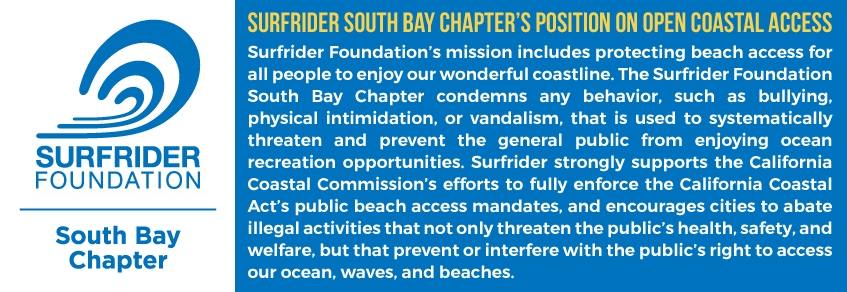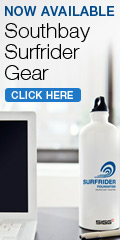Rise Above Plastics
Our Mission: To educate the public on the impacts that single-use plastics have on
marine environments, and how individuals can make changes in their daily lives
to help mitigate these impacts.

The Rise Above Plastics (RAP) Program is the Surfrider Foundation's response to the problem of plastic litter in our ocean and marine environments. The goal of the program is to educate the public on the impacts single-use plastics have on marine environments, and how individuals can make changes in their daily lives and within their communities that will stem the flow of plastics into the environment. RAP also calls upon people to reduce their plastic footprint by reducing or eliminating the use of products such as single-use plastic water bottles and plastic bags.

Single-use plastic bags represent one of the greatest environmental catastrophes of our generation. It is estimated that 60-80% of all debris in the ocean is land-based plastic. Plastics take hundreds of years to break down at sea and most types never truly biodegrade. As a result, marine animals often get entangled in the debris or mistake it for food. In Oregon (and the world!) the very first statewide volunteer beach cleanup was held in 1984 under the title "Plague of Plastics", calling historical attention to the rise of plastics in our oceans and on our beaches.
Around 100 billion plastic checkout bags are used each year in the United States, requiring ever-increasing demands on our finite natural resources. Sadly, less than 9% of these bags are recycled each year and cities, counties, and non-profit organizations must pay millions each year to clean up plastic litter.
Rise Above Plastics Facts and Figures:
- The amount of plastic produced from 2000 - 2010 exceeds the amount produced during the entire last century
- Plastic is the most common type of marine litter worldwide.
- An estimated 100,000 marine mammals and up to 1 million sea birds die every year after ingesting or being tangled in plastic marine litter
- Up to 80% of the plastic in our oceans comes from land-based sources.
- Plastics comprise up to 90% of floating marine debris.
- In 2009 about 3.8 million tons of waste plastic "bags, sacks and wraps" were generated in the United States, but only 9.4% of this total was recycled.
- Plastics do not biodegrade, but instead break down into small particles that persist in the ocean, absorb toxins, and enter our food chain through fish, sea birds and other marine life.
- Plastic bags are problematic in the litter stream because they float easily in the air and water, traveling long distances and never fully breaking down in water.
- Cleanup of plastic bags is costly. California spends $25 million annually to landfill discarded plastic bags, and public agencies spend more than $300 million annually in litter cleanup.
- It is estimated that Americans go through about 100 billion plastic bags a year, or 360 bags per year for every man, woman and child in the country.






